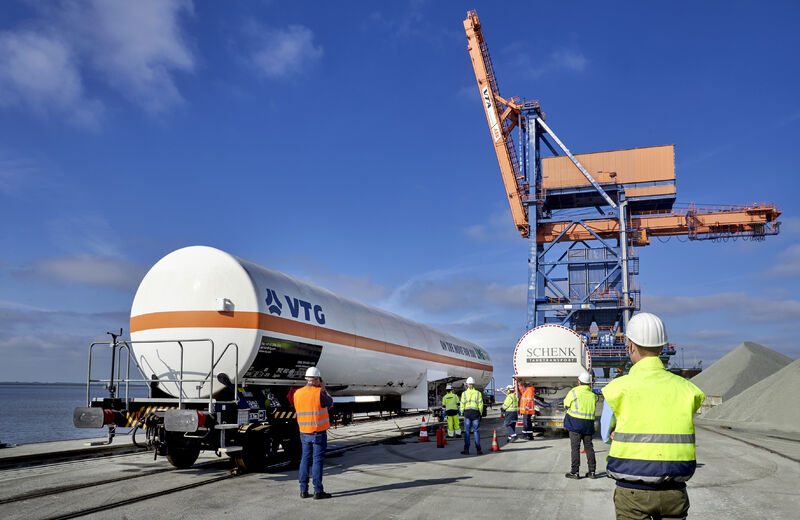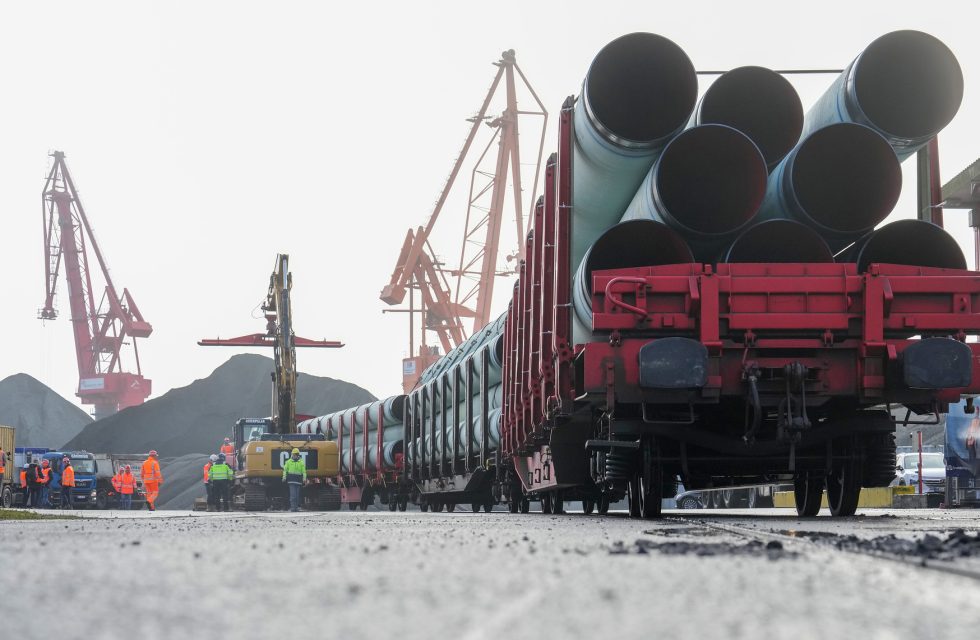Another fuel import terminal, another rail service in Germany

RWE, an energy company based in Essen, Germany, and VTG have sealed an agreement to transport green ammonia with tank containers. A new terminal for ammonia import in Brunsbüttel will be ready in 2026, and rail will be responsible for distributing the fuel to customers in Germany and the Netherlands.
“Industrial companies have little time left to switch to climate-neutral processes. Clean ammonia can help reduce CO2 emissions significantly. We are looking into rail transport with VTG because dedicated ammonia pipelines would take a long time to develop and build, if they come at all”, commented a spokesperson from RWE.
With VTG on its side, RWE will be able to explore suitable logistics solutions and rail routes that can be used to transport ammonia in tank wagons. “In the future, Germany will import large quantities of ammonia, [..] that will be distributed directly to industrial customers. VTG has many years of experience in transporting ammonia by tank wagons. That’s why RWE and VTG are also jointly looking at distribution by rail,” mentioned Ulf Kerstin, CCO of RWE Supply & Trading.
For the site in Brunsbüttel, RWE will import ammonia from the US and Namibia. “The delivery of ammonia by tank wagons has been an established method for years”, said a company spokesperson, adding that RWE has decades of experience transporting lignite and coal by rail to its power plants.

Rail becomes the right hand of import terminals
Sven Wellbrock, COO & CSO at VTG, framed the situation in a targeted manner: “In addition to its great importance as a basic material for industry, ammonia will also play an important role in securing energy supplies in the coming decades”, he said.
Indeed, Germany and other European states are currently trying to find new alternatives to the sanctioned Russian gas and the heavily CO2-emitting fuels currently in use. Ammonia will gradually acquire a more prominent role in the future in this sense.
However, rail is also getting more involved in such projects since producing green fuels is insufficient if its transport includes high emissions. The Brunsbüttel site in Northern Germany seems to understand this transition, and that is why rail is becoming prominent in its operations also during the construction phase.
If the site’s name rings a bell, this is not a mistake. Brunsbüttel was recently in the headlines due to the LNG terminal built there, to which RWE also has a share with the company Gasunie. The ammonia import terminal will be constructed in the vicinity of the LNG terminal, which is now building its hinterland pipeline connections with DB Cargo’s help that transports the pipes by rail.

VTG discontinues tank container logistics
While the latest development between RWE and VTG focuses solely on tank containers, this business segment is languishing for the latter. On 13 February, the company announced the termination of its tank container transport and logistics business by the second quarter of 2023. Specifically, VTG will dissolve the subsidiary VTG Tanktainer and close all international branches excluding only the joint venture Shanghai COSCO VTG Tanktainer Co. Ltd.
“This step is necessary to respond to the increasingly fraught market situation with which VTG has been confronted since the third quarter of 2022. A pronounced slump in demand for transport in the chemical industry and declining freight rates – partly due to the massive increase in energy costs – have been accompanied by substantial price hikes in the intermodal segment. At the same time, freight costs can now only be planned based on prices valid for between three and six months”, explained the company.
Nevertheless, VTG reassured that it will “continue and expand its tank container leasing business”, while all tank container leasing activities – including the staff and the assets themselves – will move to the mother company in Hamburg.
Follow RailFreight.com on Google News and get the latest industry updates.
Also read:
You just read one of our premium articles free of charge
Want full access? Take advantage of our exclusive offer





